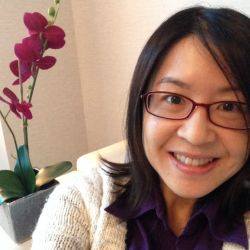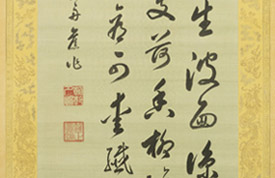Liana Chen is an assistant professor in the Department of East Asian Languages and Literatures and director of the Chinese Program at George Washington University in Washington, D.C., where she is affiliated with the Sigur Center for Asian Studies and teaches courses on traditional and modern Chinese fiction and drama, film, and women writers.
She is the author of Literati and Actors at Work: The Transformations of Peony Pavilion on Page and on Stage in the Ming and Qing Dynasties (in Chinese; National Taiwan University, 2013; preface in PDF), in which she offers a critical history of the vicissitudes of Chinese cultural values through four centuries of afterlife of Tang Xianzu's Peony Pavilion on page and on stage.
She is currently working on her second monograph. Staging the Empire: A History of Qing Court Theatre, 1662-1924, examines the political and aesthetic roles of court theatre in imperial China. The project is supported by an American Council of Learned Societies (ACLS) research fellowship (see "About Fellows").
Professor Chen has published on the Empress Dowager Cixi, Qing ritual drama, performance history of The Peony Pavilion, and xiqu (Chinese opera) conventions.
A specialist of Qing-dynasty court theatre, Tang Xianzu studies, and traditional Chinese drama especially kunqu opera, she was a visiting scholar at Harvard University and subsequently at the Chinese National Academy of Arts in Beijing, and has taught at Stanford and Penn State before joining GW.
Professor Chen has contributed to the local, national, and international communities as a consultant for the 2011-2012 exhibition on "Power | Play: China's Empress Dowager" at the Freer and Sackler Galleries, the Smithsonian's Museums of Asian Art in Washington, D.C., the GW Textile Museum liaison, Study Abroad liaison, Foreign Language Advisor for the Anthropological Quarterly, and board member of the Council on International Educational Exchange (CIEE).
Born in San Francisco, California, she has studied in Taiwan and France. She returned to California to attend graduate school and earned a Ph.D. from Stanford University. With undergraduate and graduate degrees in psychology, drama and literature, she has conducted research on the development of traditional xiqu theatres in Taiwan and China (Shanghai, Suzhou, Hangzhou, Beijing, as well as several rural provinces).
| 2009 Ph.D. in Chinese Literature, Stanford University | |
Dissertation: Ritual into Play: The Aesthetic Transformations of Qing Court Theatre [Abstract] |
|
2003 Chinese Language Pedagogy Training, Summer Program East Asian Concentration, Ohio State University
2002-2003 Exchange Scholar, Department of East Asian Languages and Civilizations, Harvard University
2000 Certificate, Centre internationale d’etudes de langues, Strasbourg, France
1999 Master of Arts in Drama and Theatre, National Taiwan University
1994 Bachelor of Science in Psychology, National Taiwan University


